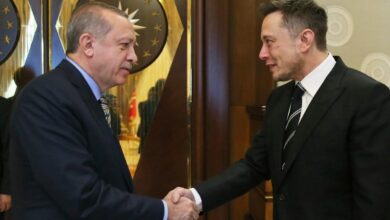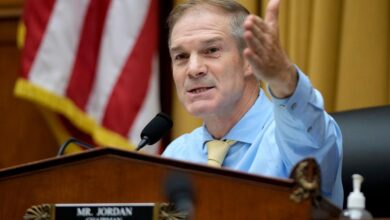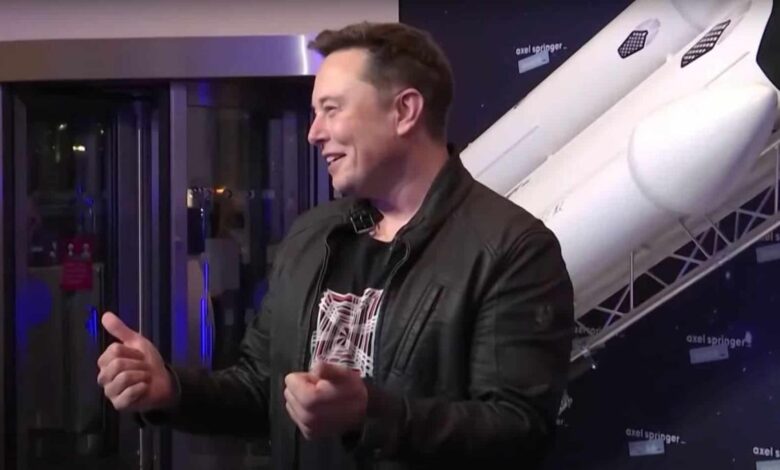
Takeover Speculation Grows After Elon Musk Turns Down Twitter Board Seat
Takeover speculation grows after Elon Musk turns down Twitter board seat, sending shockwaves through the tech world and sparking intense debate about the future of the social media giant. Musk’s unexpected rejection of a board seat, a move that would have given him significant influence over the company, has fueled speculation that he may be planning a hostile takeover bid.
This has led to wild swings in Twitter’s stock price and a flurry of questions about the potential implications of a Musk-led Twitter.
Musk’s decision to forgo the board seat has raised eyebrows, with analysts and observers scrambling to decipher his motivations. Some speculate that he may have decided to pursue a more aggressive strategy, aiming for complete control of the platform rather than simply influencing its direction from within. Others believe that Musk may be using the board seat rejection as leverage, aiming to pressure Twitter into making concessions or changes that align with his vision for the platform.
Elon Musk’s Rejection of Twitter Board Seat
Elon Musk’s decision to decline a seat on Twitter’s board of directors sent shockwaves through the tech world. The news, which came just days after Musk’s acquisition of a 9.2% stake in the company, sparked a flurry of speculation about his intentions and the future of Twitter.
Potential Implications of Musk’s Decision
Musk’s rejection of the board seat has significant implications for Twitter’s governance and future direction. As a major shareholder, Musk’s involvement was expected to bring about significant changes to the company. However, his decision to remain an outsider suggests a more aggressive approach, potentially leading to a hostile takeover bid.
Reasons Behind Musk’s Rejection
Several factors could have contributed to Musk’s decision to decline the board seat.
- Limited Influence: A board seat might have restricted Musk’s ability to enact sweeping changes. By remaining an outsider, he retains greater freedom to pursue his vision for Twitter.
- Concerns About Governance: Musk might have been dissatisfied with Twitter’s current governance structure or the company’s direction. He may believe that a more drastic overhaul is necessary.
- Strategic Play: Musk’s rejection could be a strategic maneuver aimed at pressuring Twitter into accepting his proposals or potentially triggering a hostile takeover bid. This would allow him to bypass the board and implement changes directly.
Impact on Twitter’s Governance and Future Direction
Musk’s decision to decline the board seat has created a volatile situation for Twitter. The company’s governance is now in question, with uncertainty surrounding the future direction of the platform.
- Potential for Hostile Takeover: Musk’s rejection increases the likelihood of a hostile takeover bid. He could now launch a bid to acquire the company, potentially leading to a contentious battle with Twitter’s management.
- Uncertainty About Twitter’s Future: The uncertainty surrounding Musk’s intentions has created a sense of unease among Twitter’s employees, users, and investors. It remains unclear what changes, if any, Musk will pursue, and how they will impact the platform’s future.
- Pressure on Twitter’s Management: Musk’s rejection puts significant pressure on Twitter’s management to address his concerns and potentially implement changes to appease him. This could lead to a shift in the company’s strategy and priorities.
Market Reactions and Speculation: Takeover Speculation Grows After Elon Musk Turns Down Twitter Board Seat
Elon Musk’s rejection of a board seat at Twitter sent shockwaves through the market, igniting speculation about a potential hostile takeover bid. The news triggered a roller-coaster ride for Twitter’s stock price, reflecting the uncertainty and anticipation surrounding Musk’s intentions.The market’s response to Musk’s decision was a clear indication of his influence and the potential implications of his actions for Twitter.
Investors reacted swiftly, with the stock price initially soaring on the possibility of a takeover bid. However, the gains were short-lived, as doubts about the feasibility of a deal and the potential regulatory hurdles emerged.
The takeover speculation surrounding Elon Musk and Twitter continues to heat up, especially after he declined a board seat. Meanwhile, the ongoing conflict in Ukraine takes center stage, with the Kremlin condemning a recent Ukrainian attack on a fuel depot in Russia, claiming it’s detrimental to peace talks. Read more about the Kremlin’s statement here. The international community is closely watching how these events unfold, and their impact on both the Twitter takeover and the broader geopolitical landscape remains to be seen.
Stock Price Fluctuations and Investor Sentiment
The news of Musk’s board seat rejection caused a significant spike in Twitter’s stock price, with shares surging by over 20% in after-hours trading. This initial surge reflected the market’s optimism about a potential takeover bid, with investors anticipating a premium for the company’s shares. However, the gains quickly evaporated as the market grappled with the complexities of a potential deal and the regulatory challenges that could arise.
The stock price subsequently settled back down, indicating the market’s uncertainty about the future of Twitter.
“The market’s initial reaction to Musk’s decision was a clear indication of the potential for a takeover bid. However, the subsequent decline in the stock price reflects the market’s growing concerns about the feasibility and regulatory hurdles of such a deal.”
Investor sentiment, initially bullish, shifted towards a more cautious stance as the reality of a potential takeover bid became clearer. The market’s concerns stemmed from the possibility of regulatory scrutiny, potential antitrust issues, and the uncertainty surrounding Musk’s ultimate intentions. Investors were left to navigate the choppy waters of speculation, trying to decipher Musk’s cryptic tweets and decipher his next move.
The drama surrounding Elon Musk’s potential Twitter takeover continues to unfold, with his decision to decline a board seat adding fuel to the fire. This move suggests a more aggressive approach, potentially leading to a full-blown hostile takeover. Amidst this chaos, a recent Randstad survey reveals that the “Great Resignation” isn’t slowing down, with many employees seeking new opportunities and better work-life balance.
This trend might also play a role in the Twitter saga, as employees could be hesitant to remain with the company amidst uncertainty and potential leadership changes.
Reasons for Market Reactions
The market’s response to Musk’s decision can be attributed to several key factors:
- Musk’s Influence and Reputation: Elon Musk is a well-known and influential figure in the tech world, with a proven track record of disrupting industries. His involvement in Twitter immediately sparked speculation about potential changes to the platform, leading investors to anticipate a significant impact on the company’s future.
- Potential Takeover Bid: Musk’s rejection of the board seat fueled speculation about a potential takeover bid. His significant stake in Twitter and his public statements about the company’s shortcomings suggested that he might be considering a hostile takeover. The market’s response was driven by the possibility of a premium for Twitter’s shares, as well as the potential for a significant shake-up of the company’s operations.
- Regulatory Uncertainty: The prospect of a Musk-led takeover of Twitter raised concerns about potential regulatory hurdles. Antitrust regulators could scrutinize the deal, particularly given Musk’s already significant influence in the tech sector. The market’s reaction reflected this uncertainty, with investors questioning the feasibility of a deal in the face of potential regulatory challenges.
Sentiment Surrounding a Potential Takeover Bid
The market’s sentiment surrounding a potential takeover bid by Musk remains mixed. While some investors are optimistic about the prospect of a shake-up at Twitter, others are wary of the potential challenges and uncertainties. The market’s reaction to Musk’s decision suggests that there is a significant appetite for change at Twitter, but also a recognition of the complex issues that would need to be addressed in a takeover scenario.The current sentiment is characterized by a mix of anticipation and apprehension.
Investors are eager to see what Musk’s next move will be, but they are also mindful of the potential risks and challenges associated with a takeover bid. The market’s response will likely continue to fluctuate as more information emerges and Musk’s intentions become clearer.
The drama surrounding Elon Musk’s potential Twitter takeover continues to unfold. After declining a board seat, speculation about a full-blown acquisition has intensified. This all comes as former President Trump has thrown his support behind Sarah Palin in her bid for Alaska’s congressional seat, trump endorses sarah palin for alaska congressional seat , a move that has further ignited political discourse.
Whether Musk ultimately pursues a Twitter takeover remains to be seen, but one thing is certain: the tech and political worlds are on edge, waiting to see what happens next.
Potential Takeover Scenarios
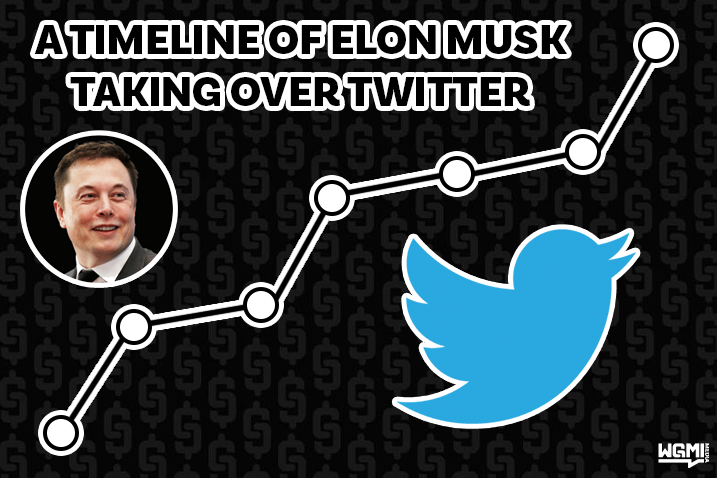
Elon Musk’s rejection of a Twitter board seat has ignited speculation about a potential takeover of the social media giant. This move, coupled with his sizable stake in the company, has created a high-stakes scenario with various potential paths forward. Several takeover scenarios are possible, each with unique implications for Twitter, its stakeholders, and the broader social media landscape.
Hostile Takeover
A hostile takeover would involve Musk launching a bid for Twitter without the company’s board’s approval. This scenario would likely involve Musk making a public offer to buy Twitter shares directly from existing shareholders at a price higher than the current market value. A hostile takeover would face significant legal and regulatory hurdles.
- Antitrust scrutiny: Regulators would scrutinize the deal to ensure it doesn’t stifle competition in the social media market. Musk’s ownership of Tesla and SpaceX could raise concerns about potential conflicts of interest.
- Shareholder approval: Musk would need to secure a majority of Twitter shareholders’ votes to succeed in a hostile takeover. This could be challenging, as some shareholders might prefer the company’s current leadership.
- Legal challenges: Twitter’s board could attempt to block the takeover through legal challenges, citing concerns about Musk’s intentions or the deal’s potential impact on the company.
A hostile takeover would likely be met with resistance from Twitter’s board and management, potentially leading to a protracted legal battle.
Negotiated Acquisition
A negotiated acquisition would involve Musk and Twitter’s board reaching an agreement on the terms of the takeover. This scenario would likely involve Musk making a formal offer to the board, followed by negotiations to determine the final price and other conditions.A negotiated acquisition would be less contentious than a hostile takeover, but it still faces legal and regulatory challenges.
- Antitrust scrutiny: Regulators would still need to review the deal to assess its potential impact on competition.
- Shareholder approval: Twitter shareholders would need to approve the deal, although this would likely be less challenging in a negotiated scenario.
- Regulatory hurdles: The deal would be subject to regulatory approvals from various jurisdictions, including the U.S. Securities and Exchange Commission (SEC).
A negotiated acquisition would offer a more controlled and less disruptive path to a takeover, but it would still require careful legal and regulatory planning.
Strategic Partnership
A strategic partnership would involve Musk and Twitter collaborating on specific initiatives without a full takeover. This could involve joint ventures, technology integrations, or content partnerships.A strategic partnership would avoid the legal and regulatory hurdles associated with a takeover, but it would also limit Musk’s influence on Twitter’s operations.
- Limited control: A strategic partnership would give Musk less control over Twitter’s operations and decision-making.
- Scope of collaboration: The scope of the partnership would be limited to specific initiatives, leaving Twitter’s overall strategy largely unchanged.
- Potential conflicts: Collaboration could lead to conflicts of interest, particularly if Musk’s other businesses have overlapping interests with Twitter.
A strategic partnership could be a less disruptive option for Twitter, but it would offer Musk less control and influence over the company.
Musk’s Influence and Twitter’s Future
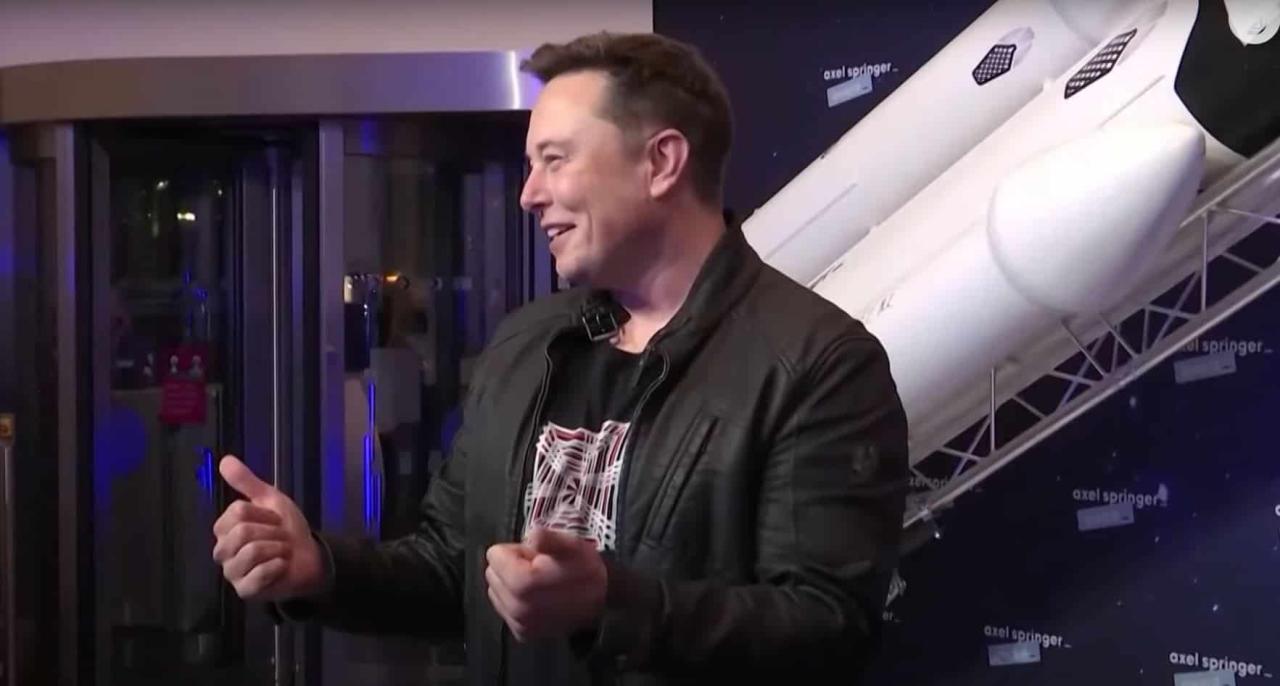
The potential takeover of Twitter by Elon Musk has ignited widespread speculation about the future of the platform, with particular focus on the potential impact of Musk’s leadership on content moderation, platform features, and overall strategy. While Musk has expressed a commitment to free speech and a desire to make Twitter a “digital town square,” his vision for the platform remains largely undefined, raising questions about the potential benefits and drawbacks of a Musk-led Twitter.
Potential Impact on Content Moderation
Musk’s stated commitment to free speech has raised concerns about potential changes to Twitter’s content moderation policies. While Musk has argued that he believes in “free speech, but not freedom of reach,” the precise definition of this approach remains unclear. Critics argue that a loosening of content moderation policies could lead to an increase in hate speech, misinformation, and harassment on the platform.
- Musk’s stance on content moderation is a complex issue, with his own views evolving over time. In 2020, he criticized Twitter’s content moderation policies, stating that “free speech is essential to a functioning democracy,” and that he would “do whatever it takes” to improve the platform. However, he has also acknowledged the need for some form of content moderation, arguing that “free speech is essential, but it should not come at the cost of safety and security.”
- Some experts argue that Musk’s vision for a more free-speech-oriented Twitter could have a significant impact on the platform’s content moderation policies. They point to Musk’s history of supporting controversial figures and his criticism of Twitter’s current content moderation practices. For example, Musk has previously defended his decision to reinstate the account of former President Donald Trump, who was permanently suspended from Twitter in 2021.
This decision, if implemented by Musk, could signal a significant shift in Twitter’s approach to content moderation.
- Others argue that Musk’s impact on content moderation may be more nuanced. They point to his focus on improving the platform’s algorithm and his desire to create a more transparent and accountable system for content moderation. This approach could lead to changes in the way content is prioritized and displayed on Twitter, but it is unclear how it would impact the platform’s overall content moderation policies.
Potential Changes to Platform Features
Musk has hinted at a number of potential changes to Twitter’s platform features, including the introduction of new features, the removal of existing features, and a shift in the platform’s overall design.
- One of the most significant potential changes is the introduction of an edit button, a feature that has been long requested by Twitter users. Musk has stated that he believes an edit button would be beneficial for users, allowing them to correct mistakes or typos in their tweets. However, the implementation of an edit button could raise concerns about the potential for abuse, such as the editing of tweets to change their meaning or to spread misinformation.
- Musk has also suggested that he would consider removing the character limit on tweets, which has been a defining feature of the platform since its inception. This change could lead to longer and more detailed tweets, potentially altering the way users engage with the platform. However, it could also make the platform more difficult to navigate and could lead to an increase in spam and irrelevant content.
- In addition to specific feature changes, Musk has also expressed a desire to improve the platform’s algorithm and to make it more transparent. This could lead to a shift in the way content is prioritized and displayed on Twitter, potentially impacting the user experience. However, it is unclear how Musk would implement these changes or what impact they would have on the platform’s overall functionality.
Impact on Twitter’s Governance and Leadership
Elon Musk’s potential takeover of Twitter could have a significant impact on the platform’s governance and leadership. Musk has already indicated a desire to make significant changes, which could lead to a restructuring of the board, management roles, and company culture.
Potential Changes in Board Composition and Management Roles, Takeover speculation grows after elon musk turns down twitter board seat
A takeover by Musk could result in a complete overhaul of Twitter’s board of directors. Musk has criticized Twitter’s current leadership and has suggested that he would replace the existing board with a new team. This could involve appointing individuals with expertise in areas such as technology, finance, and social media. Musk’s leadership style is known for being hands-on and demanding.
He has a history of making significant changes to the companies he acquires, and Twitter could be no exception. He might assume a more active role in the day-to-day operations of the platform, potentially even taking on the role of CEO. This could lead to changes in management roles and responsibilities, with some executives being replaced or reassigned.
Potential for a Decentralized or Centralized Governance Model
Musk has expressed a belief in the importance of free speech and has criticized Twitter’s content moderation policies. He has suggested that he would like to make Twitter a platform where “everyone can speak freely.” This could lead to a more decentralized governance model, with less emphasis on centralized control over content. However, it is also possible that Musk’s vision for Twitter could lead to a more centralized model, with greater control over the platform’s content and user experience.
Potential Changes in Company Culture
Musk’s leadership style could also have a significant impact on Twitter’s company culture. He is known for being demanding and pushing his employees to work long hours. He has also been criticized for his management style, which has been described as “intense” and “ruthless.” This could lead to a more competitive and demanding work environment at Twitter, with a focus on achieving ambitious goals.
The implications of a potential Musk takeover of Twitter are far-reaching and complex. It’s a scenario that could fundamentally alter the landscape of social media, potentially leading to changes in content moderation policies, platform features, and even the very nature of online discourse. Whether Musk ultimately decides to pursue a takeover or not, his actions have already injected a dose of uncertainty and excitement into the Twitter ecosystem, leaving everyone wondering what the future holds for the platform and its users.

